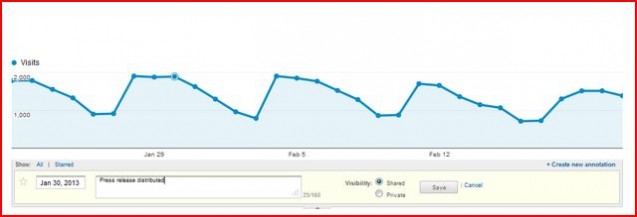An important element in any SEO campaign is the ability to adjust strategy based on actual results. Tracking the right data is essential not only to show the value of the investment and effort in a campaign but also to help refine the campaign for even better results.
In order to implement results-based actions within an SEO or marketing campaign it’s important that the right metrics are recorded and analyzed. All campaigns are unique and have varying goals. It’s vital, therefore, to identify the performance indicators that lead to those goals. Believe it or not, there are still SEO “experts” that gauge performance solely on organic traffic and/or (even worse) rankings. Unless the one and only purpose of a website is to generate traffic in order to sell advertising space, a much deeper analysis into the SEO performance is needed.
Of course, rankings and traffic are still important metrics to track, but to truly be successful, measurement must go much deeper.
Segment Brand vs. Non-Brand Search Queries
In order to truly isolate organic search as a driver of business it’s important to look specifically at the performance metrics generated from non-branded search. Overall organic metrics can be inflated due to other marketing efforts, such as offline, which can substantially increase traffic generated from branded organic queries. A spike in organic search traffic may be incorrectly attributed to SEO if those tracking organic search are unaware of a recent TV spot, for example, that is causing consumers to search a brand name. Segmenting out non-branded search queries will provide better insight into performance specific to SEO efforts. This is easy to do by using advanced filters with organic keyword reports in most analytics platforms.

Of course, SEO does affect branded search, especially for returning visitors who first interacted with a brand via a non-branded search query. Therefore, branded organic traffic should not be ignored from an SEO measurement perspective. An increase in branded organic search traffic from returning visitors can be a result of improved non-branded search performance and should be analyzed.
It’s also important to have good communication among other marketing channels in order to identify other efforts that can be negatively impacting organic search numbers. These efforts should be recorded and taken into account when analyzing SEO performance. SEO departments should make themselves aware of any other marketing initiatives, as well as the timelines of such. Entering annotations in organic search traffic graphs in Google Analytics is a good way to track any other marketing efforts or events that could impact the data.

Engagement Matters
Driving traffic to a website that bounces (leaves the site without visiting a second page) is typically a wasted effort. Search engines also will take note when traffic they send to a site has a high bounce rate, and potentially give it lower rankings as a result. Analyze engagement factors, such as bounce rate and time spent on page at the keyword level, especially for those keywords the SEO campaign is targeting.
If specific target keywords are leading to poor engagement on the site compared to other keywords and/or the site average, this is an indicator that these may not be the best keywords to target. Substituting low-engagement keywords with alternatives more relevant to the target consumer is a good way to improve the traffic being generated from SEO and overall success of the campaign. If there is a general sense of users being disengaged across all traffic sources, there may be a need for a user-experience analysis/usability testing.
Give Users an Action
When driving traffic to a website via any digital marketing campaign it’s usually for the purpose of the visitors to perform an action, whether filling out a lead form, completing a purchase, signing up for a newsletter, etc. In order to know if SEO efforts are driving meaningful traffic it’s essential to track the actions users complete when on a website.
Looking at high-level metrics, it may be evident that certain targeted keywords are driving a great deal of site traffic. Without tracking the actions those visitors complete, however, it’s difficult to know whether that traffic is actually benefitting the business and driving the bottom line. This makes it essential to set up different conversion points based on the desired actions for users to take with the ability to track.
For example, if the preferred action is for the consumer to make a phone call to the business it can be difficult to track back to the traffic source and keyword. There are tools, such as ClickPath, however, that allow this type of conversion tracking by serving a different phone number to different visitors and tracking the source of an executed phone call back to the keyword level of the traffic source based on the time the call was placed.
If the budget is not there for tools that provide this level of tracking, an alternative is to provide visitors with an online lead form in addition to the business’ phone number. Submissions of the lead form are easily trackable using most Web analytics platforms. While some visitors will use the phone number to complete an action, which won’t provide conversion data based on SEO efforts, those who fill out the form will provide insight on which keywords convert the best.
Setting up the right tracking, and selecting the right metrics to record and analyze, are critical first steps in initiating a successful SEO campaign. The bottom-line goals of the campaign must be reverse-engineered in order to inform the most impactful elements that will lead to those goals so they can be properly analyzed.




